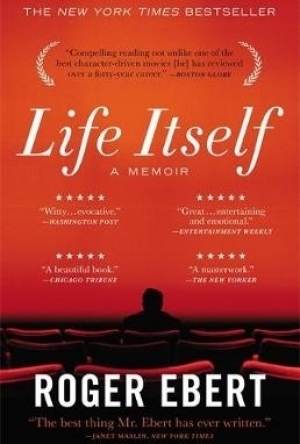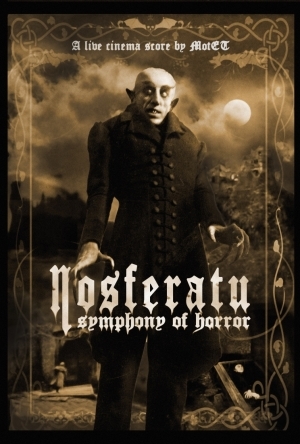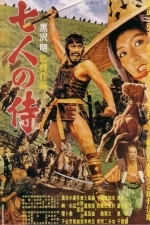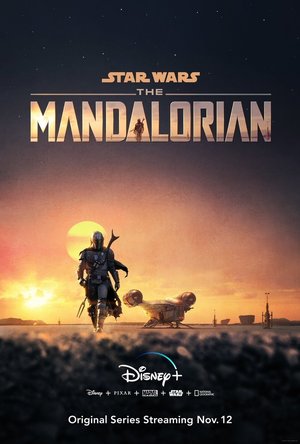Search

Life Itself: A Memoir
Book
Roger Ebert is the best-known film critic of our time. He has been reviewing films for the Chicago...
Dave Navarro recommended Nosferatu (Eine Symphonie Des Grauens) (1922) in Movies (curated)
Henry Rollins recommended Seven Samurai (1954) in Movies (curated)
LeftSideCut (3778 KP) rated The Mandalorian - Season 1 in TV
May 5, 2020
A live action series set in the Star Wars universe has been a long time coming and thankfully, it hit almost all the right notes.
The Mandalorian is set after the events of Return of the Jedi, where the empire is all but gone, and the titular hero is going about his business, taking bounty jobs for good pay. It's not too long before it's revealed that remnants of the empire remain intact and one unexpected bounty job sets Mando on a different path entirely.
The plot isn't too heavy on dramatics for the most part, and the 8 episode arc concentrates on small stories - mini adventures that are resolved relatively quickly. It's a lot of fun. The final two episodes set up a larger narrative, that has me excited for season 2.
The Mandalorian himself (Pedro Pascal) is a great lead, and considering his face is covered the entire time, that's high praise. He has a cold, precise exterior, and shows off frequently his capabilities as a warrior (every episode has a pretty awesome action set piece at one point). Underneath it all, his humanity is shown when The Child (commonly know as Baby Yoda) is thrown into his care, drawing paraells with his own childhood.
The Child arguably steals the show at intervals, being offensively cute throughout, and showing hints at force powers here and there.
Other cast members include Cara Dune (Gina Carano), a completely badass ex Imperial Shock Trooper. Her character is another highlight, and I sincerely hope to see her return for season 2.
Greef Karga (Carl freaking Weathers), bounty salesman and sometimes ally of Mando. The three of them (plus The Child) make for a damn fine crew.
Some further Star power is provided by IG-11 (Taika Waititi) and Kuiil (Nick Nolte) and these two characters further flesh out a great cast.
The villains of the piece aren't in your face, but are present enough to lay the seeds for bigger things to come. Earlier on we have The Client (Werner Herzog oozing text book evil empire vibes), and a bit later, Moff Gideon (Giancarlo Esposito), who is menacing enough to make an impact with his little screentime.
I also enjoyed the fleshing out of the Mandalorian religion.
There is some great directing talent in display as well, with episode from the likes of the aforementioned Taika Waititi, Deborah Chow, Dave Filoni, Bryce Dallas Howard, and Rick Famuyiwa. They've all down a great job of bringing this particular Star Wars narrative to life, and I genuinely enjoyed every episode.
Except for episode 6. And thats mainly due to the throwaway characters we get given. (It reminded me of that infamous shitty episode in season 2 of Stranger Things.)
The devotion to using practical effects pays off tremendously, as The Mandalorian frequently looks superb. The CGI used is actually pretty subtle, and the mix of the two works.
All in all, it's a strong first season that personally tops any of the recent trilogy in terms of Star Wars material. Can't wait to see where it goes!
The Mandalorian is set after the events of Return of the Jedi, where the empire is all but gone, and the titular hero is going about his business, taking bounty jobs for good pay. It's not too long before it's revealed that remnants of the empire remain intact and one unexpected bounty job sets Mando on a different path entirely.
The plot isn't too heavy on dramatics for the most part, and the 8 episode arc concentrates on small stories - mini adventures that are resolved relatively quickly. It's a lot of fun. The final two episodes set up a larger narrative, that has me excited for season 2.
The Mandalorian himself (Pedro Pascal) is a great lead, and considering his face is covered the entire time, that's high praise. He has a cold, precise exterior, and shows off frequently his capabilities as a warrior (every episode has a pretty awesome action set piece at one point). Underneath it all, his humanity is shown when The Child (commonly know as Baby Yoda) is thrown into his care, drawing paraells with his own childhood.
The Child arguably steals the show at intervals, being offensively cute throughout, and showing hints at force powers here and there.
Other cast members include Cara Dune (Gina Carano), a completely badass ex Imperial Shock Trooper. Her character is another highlight, and I sincerely hope to see her return for season 2.
Greef Karga (Carl freaking Weathers), bounty salesman and sometimes ally of Mando. The three of them (plus The Child) make for a damn fine crew.
Some further Star power is provided by IG-11 (Taika Waititi) and Kuiil (Nick Nolte) and these two characters further flesh out a great cast.
The villains of the piece aren't in your face, but are present enough to lay the seeds for bigger things to come. Earlier on we have The Client (Werner Herzog oozing text book evil empire vibes), and a bit later, Moff Gideon (Giancarlo Esposito), who is menacing enough to make an impact with his little screentime.
I also enjoyed the fleshing out of the Mandalorian religion.
There is some great directing talent in display as well, with episode from the likes of the aforementioned Taika Waititi, Deborah Chow, Dave Filoni, Bryce Dallas Howard, and Rick Famuyiwa. They've all down a great job of bringing this particular Star Wars narrative to life, and I genuinely enjoyed every episode.
Except for episode 6. And thats mainly due to the throwaway characters we get given. (It reminded me of that infamous shitty episode in season 2 of Stranger Things.)
The devotion to using practical effects pays off tremendously, as The Mandalorian frequently looks superb. The CGI used is actually pretty subtle, and the mix of the two works.
All in all, it's a strong first season that personally tops any of the recent trilogy in terms of Star Wars material. Can't wait to see where it goes!


